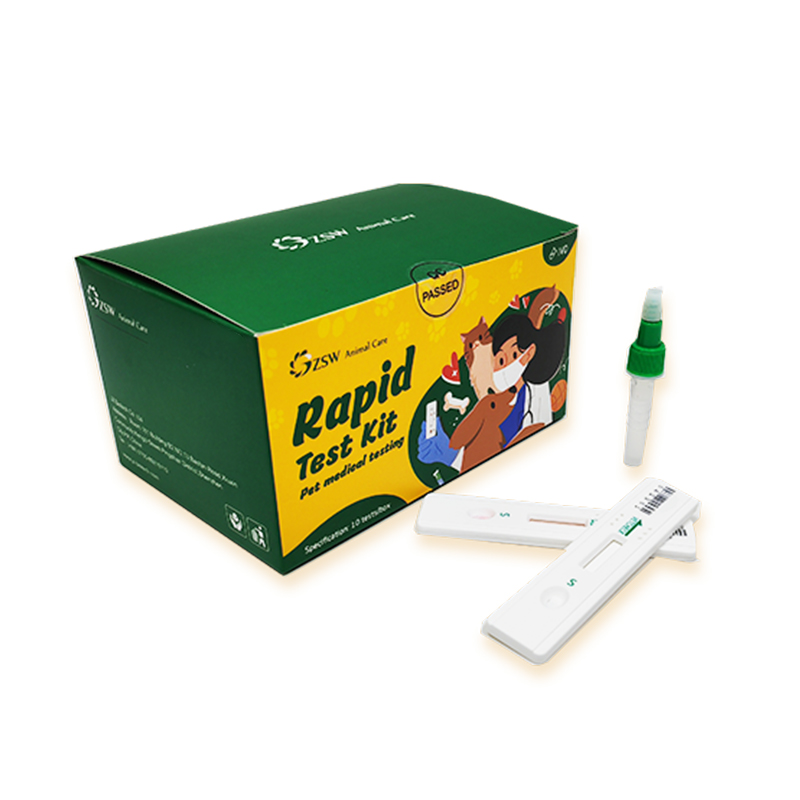



The product uses fluorescent immunochromatography to quantitatively detect the cLSH Ab content in canine serum/plasma. Basic principle: T and C lines are drawn on the nitrocellulose membrane, and the T line is marked with a secondary antibody that specifically recognizes canine IgG. Antigens labeled with fluorescent nanomaterials that can specifically recognize cLSH Ab are sprayed on the binding pad.
The cLSH Ab in the sample first combines with the antigen labeled by the nanomaterial to form a complex, and then goes up the chromatography. The complex is captured by the T-line antibody. When the excitation light is irradiated, the nanomaterial emits a fluorescent signal, and the signal intensity is the same as that of the cLSH in the sample. Ab concentration is positively correlated.
【Detection purpose】 Leishmania (Leishmania spp.) belongs to the protozoa of the trypanosome family Leishmania, which can cause leishmaniasis in humans and various animals, and is an important zoonotic disease. The main targets of Leishmania infection include hyraxes, rodents, canines and humans. The disease develops slowly and has a certain incubation period. The clinical manifestations are irregular fever, hepatosplenomegaly, progressive anemia and elevated plasma globulin. Sandflies are their vectors. Dogs are important conservation hosts for Leishmania donovani. After the dog is infected with this disease, the incubation period ranges from several weeks, several months to more than 1 year. Most dogs are in a state of recessive parasites after infection, and generally have no obvious symptoms. A small number of dogs have symptoms of skin damage, rough and dull coat, or even fall off. There are sebum overflow or chaff-like scales at the depilated area, or nodules are formed due to skin thickening, and ulcers are formed after the nodules are ruptured. Skin lesions are more common on the head, especially around the ears, nose and eyes, and can also occur in other parts. In the late stage of the disease, the sick dog has a loss of appetite, even refuses to eat, gradually becomes thin, anemic, and mentally depressed. Eye skin damage can cause eye edge inflammation, and some also have moderately elevated body temperature, keratitis and conjunctivitis. Foot joint swelling and stiffness. With the further development of the disease, the barking of the affected dog became hoarse and even difficult, and finally died of cachexia. Relevant antibodies can be detected in canine serum after infection. In the absence of a vaccine, serum Leishmania antibodies are a good diagnostic aid.

